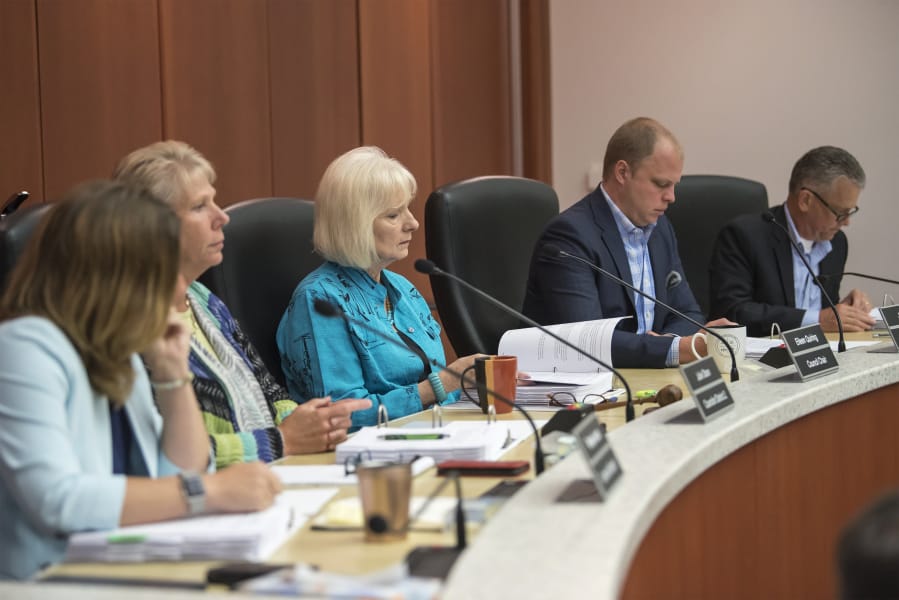Clark County has an opportunity to take a symbolic and tangible stand against racism this week.
When the Clark County Board of Health convenes for its monthly meeting Wednesday, it will discuss and likely vote on a resolution to declare racism a public health emergency.
The resolution was presented by Clark County Councilor Temple Lentz at October’s Board of Health meeting, and discussed again at a November council time meeting.
In the summer, the president of the Southwest Washington League of United Latin American Citizens Council 47013, Ed Hamilton Rosales, formally asked for an action like this.
If passed, the resolution could have three major impacts, Lentz said. It could increase the county’s eligibility for grant funds targeted at health disparities and inequities. It would help set parameters the county could use to form policy or re-examine existing policy. And it would help build community trust.
“The resolution would show and demonstrate to communities of color that this is something we are taking seriously,” Lentz said.
Across Clark County, and the United States, people of color suffer from negative health disparities and inequities in health care. Racism negatively impacts physical health.
The stress from experiencing consistent racism can break the body down over time. That process is called “weathering,” a term coined by Arline Geronimus, a public health researcher and University of Michigan professor.
Benita Presley, the health chair for Vancouver’s chapter of the NAACP, said the resolution could be a positive first step to correcting negative health disparities that exist in Clark County.
“It’s really opening a door to just acknowledge that racism is not just words,” Presley said. “It has a physical effect on people, and it messes with your mental psyche.”
In Clark County, Black men are expected to die five years younger (73 years old) than white men (78). Native Hawaiian and Pacific Islander men are expected to die 15 years younger than white men.
Native Hawaiian and Pacific Islander women are expected to die seven years younger (75 years old) than white women (82).
Nearly 18 percent of Latino people are uninsured, more than triple the number of white uninsured people in Clark County, which is 4.9 percent, according to data from Clark County Public Health.
Twenty-five percent of Native Hawaiian and Pacific Islander people are uninsured in Clark County.
Health disparities have traditionally existed for people of color in a number of other areas as well, but this year’s pandemic has shown how quickly gaps in health can form.
In Clark County, Latino people make up around 30 percent of the county’s COVID-19 cases, but only 10 percent of the county’s population.
“The growing inequities were exposed for what they were,” Hamilton Rosales said of the pandemic.
Clark County Public Health Officer Dr. Alan Melnick said the resolution would not only help Public Health procure grants, but also build community trust, and help Public Health hire and retain people of color.
“There’s a lot of ways that this would direct our work and make it more successful,” Melnick said. “We need to work hard to eliminate inequities and disparities. The science shows us that racism is a determinant of health and we need to address that. It’s an obligation we have.”
At the council time meeting last month, Clark County Councilor John Blom expressed support for the resolution. Councilor Julie Olson supported moving the resolution forward for further discussion.
Councilor Gary Medvigy and Council Chair Eileen Quiring O’Brien did not support the resolution then, questioning the intersection of racism and health outcomes and whether a resolution would actually help Public Health.
In June, the county council did unanimously approve a resolution recognizing systemic racism and injustice in the county, but a week later, Quiring O’Brien said she did not believe systemic racism exists in Clark County.
Lentz said lived experiences and research will guide her decision.
“I believe we need to listen to people who are affected by this and trust the data and the science,” she said. “The evidence is there.”




